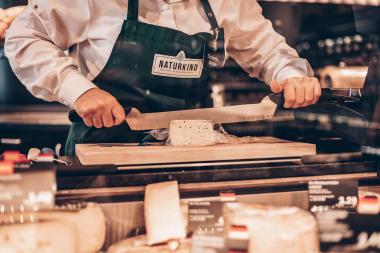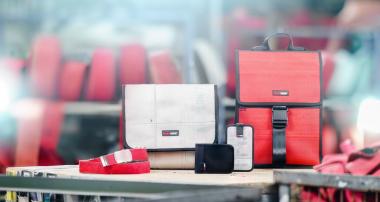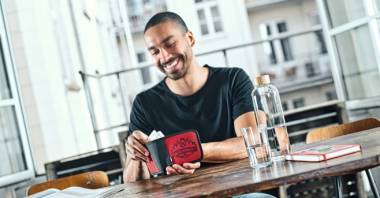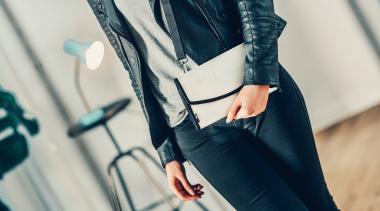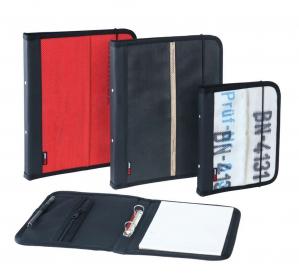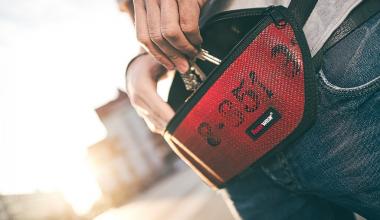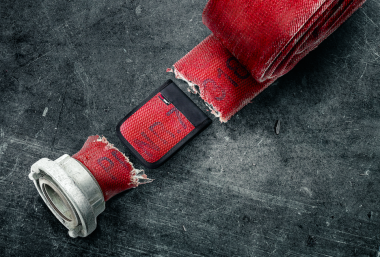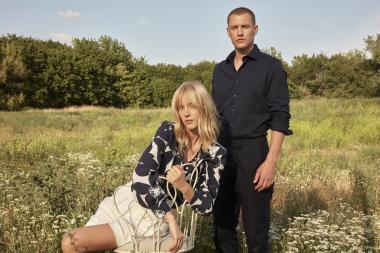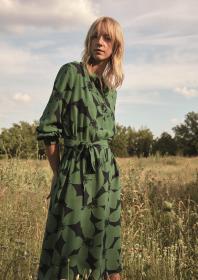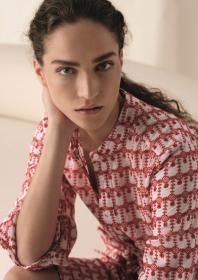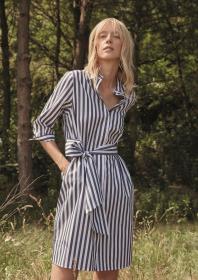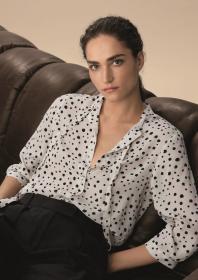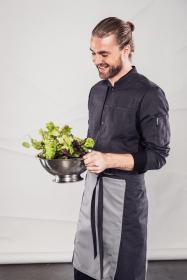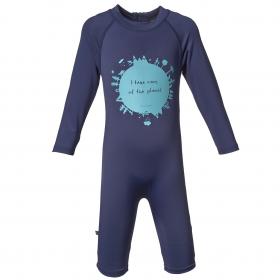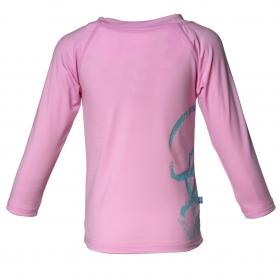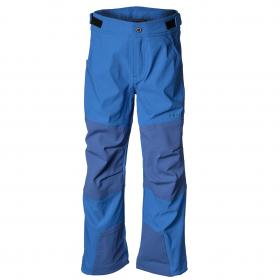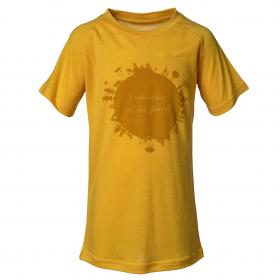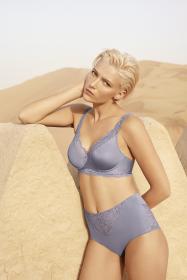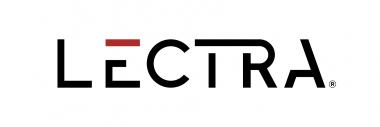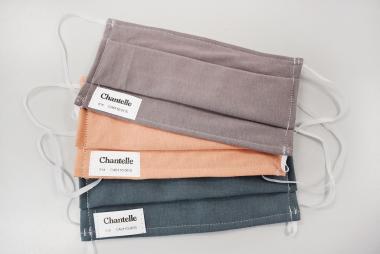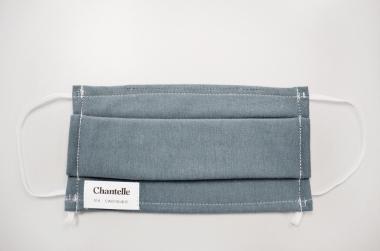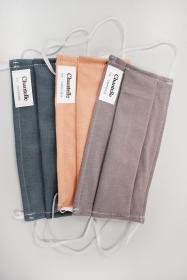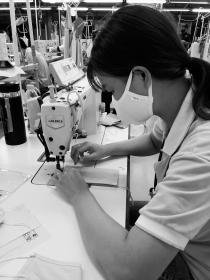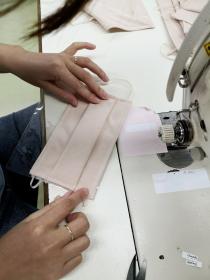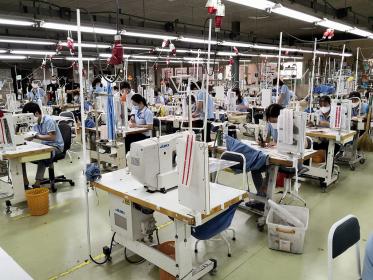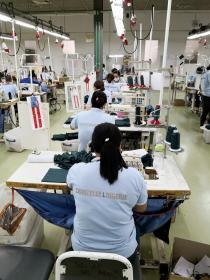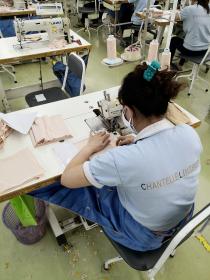Naturkind trägt nachhaltige Workwear von Weitblick
IMMER SCHÖN FAIR
Bereits im Jahr 2019 hat Weitblick mit der Fairtrade-Lizenzierung und dem Projekt „Supporting Fairtrade Cotton“ Verantwortung übernommen und sich klar zu fairem Handel und nachhaltiger Textilproduktion positioniert. Nun hat der Kleinostheimer Workwear-Hersteller gemeinsam mit dem Bio-Lebensmittelhändler Naturkind aus dem EDEKA-Konzern eine erste Kollektion mit Fairtrade- Baumwolle für den Bio-Supermarkt umgesetzt. Ein Beispiel, das auch weitere Unternehmen ermutigen soll, zukünftig auf faire Workwear zu setzen.
BIO? NATÜRLICH!
Naturkind steht für Artikel in ausschließlicher Bio-Qualität, bevorzugt regional und lokal erzeugt – eben mit dem reinen Geschmack der Natur. Ökologischer Landbau, artgerechte Tierhaltung und eine kooperative Zusammenarbeit mit Erzeugern sind die Grundpfeiler der Lebensmittelherstellung, wie sie bei Naturkind als wertvoll und schützenswert verstanden und gelebt werden. Für Naturkind ist dieses Engagement selbstverständlich, vielmehr kommt es von innen heraus. Und genau deshalb passen Naturkind und Weitblick auch so gut zusammen. „Wir glauben, dass bewusster Genuss der Schlüssel zu einer besseren Welt und einem nachhaltigen Leben ist. Denn er verbindet die Freude an wertvollen und gesunden Lebensmitteln mit der Achtung vor der Umwelt und der menschlichen Arbeit. Weitblick produziert Kleidung aus fairer Baumwolle und teilt unsere Werte hinsichtlich des Nachhaltigkeitsgedankens. Jedes Unternehmen ist auf seinem Gebiet ein Weltverbesserer – das ergibt für Naturkind eine wertvolle Partnerschaft auf Augenhöhe“, erläutert Rüdiger Ammon, Naturkind-Inhaber, die Entscheidung für die Workwear mit Fairtrade- Baumwolle von Weitblick.
STEP BY STEP
Jeder kleine Beitrag zu einem nachhaltigeren, umweltbewussteren Leben zählt. Ob es nun die Reduzierung von Fleisch oder tierischen Produkten, die Einsparung von Plastikverpackungen oder eben der Kauf von Kleidung mit verarbeitender Baumwolle zu Fairtrade-Bedigungen ist: jeder Einzelne kann und sollte das tun, wozu er sich imstande fühlt. Denn der Weg zum Ziel beginnt doch mit dem ersten Schritt. Zweifelsohne sind momentan besonders viele dieser kleinen, ersten Schritte auch bitter nötig. In Indien, das zu den wichtigsten Textilproduzenten der Welt gehört, wurde am 24. März der Lockdown beschlossen – mit weitreichenden Folgen für die vielen Wanderarbeiter und Kleinbauern. Auch in Kenia und Äthiopien wurden unzählige Menschen entlang der Textilproduktionskette ihrer Erwerbsgrundlage beraubt. Gerade jetzt braucht es verantwortungsvolle Unternehmen, die gemeinsam mit allen Beteiligten nach Lösungen suchen – eben ein partnerschaftliches Miteinander. Durch das Support Fairtrade Cotton
Programm leistet Weitblick hier einen aktiven Beitrag, um eine verbesserte Einkommenssituation und finanzielle Stabilität der Kleinbauern zu erwirken und dauerhaft verbesserten Gesundheitsschutz sowie geregelte Arbeitsbedingungen zu schaffen – auch und besonders in der Corona-Krise.
„Wir nehmen hier gerne eine Vorbildfunktion ein, denn es geht momentan nicht nur um die Einkommen, sondern schlichtweg um die Existenz der Menschen. In den Herkunftsländern fair gehandelter Baumwolle trifft das Virus nicht nur auf fragile Gesundheitssysteme, sondern zugleich auf eine exportabhängige Wirtschaft und fehlende soziale Absicherung. Es liegt an uns, hier zu handeln und aktiv zu werden“, fasst Felix Blumenauer, Geschäftsführer von Weitblick, entschlossen zusammen.
FAIRER MUNDSCHUTZ
Dass neben der ersten Kollektion mit dem Supporting Cotton Siegel auch die kurzerhand in die Produktion aufgenommenen Hygiene-Masken aus dem Hause Weitblick faire Stücke sind, versteht sich da fast von selbst. Die Stoffe aus Geweberückständen und fairer Baumwolle werden über das Supporting Fairtrade Cotton Projekt bezogen. Genäht wird in den europäischen Produktionsstätten. Mit jedem Kauf einer Maske aus dieser Produktion werden Baumwollproduzenten im angeschlagenen, globalen Süden unterstützt – und wichtige Arbeitsplätze erhalten: zahlreiche Unternehmen haben nämlich ihre bereits platzierten Aufträge storniert und sorgen so für eine zusätzliche Verschärfung der Lage.
WEITBLICK® | Gottfried Schmidt OHG
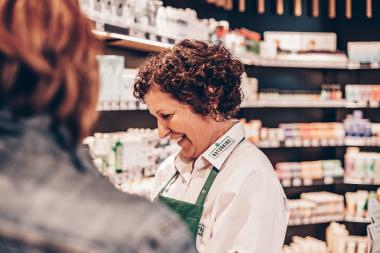 WEITBLICK® | Gottfried Schmidt OHG
WEITBLICK® | Gottfried Schmidt OHG
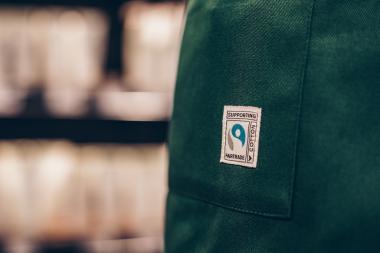 WEITBLICK® | Gottfried Schmidt OHG
WEITBLICK® | Gottfried Schmidt OHG
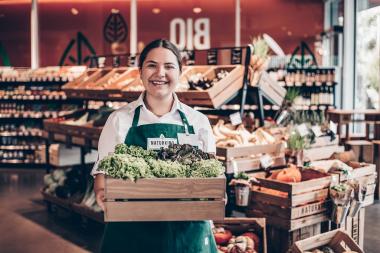 WEITBLICK® | Gottfried Schmidt OHG
WEITBLICK® | Gottfried Schmidt OHG
Weitblick Gottfried Schmidt OHG EDEKA Naturkind Supporting Fairtrade Cotton Nachhaltigkeit Bio-Baumwolle Fairtrade
WEITBLICK® | Gottfried Schmidt OHG


